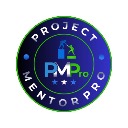Activity
Mon
Wed
Fri
Sun
Oct
Nov
Dec
Jan
Feb
Mar
Apr
May
Jun
Jul
Aug
Sep
What is this?
Less
More
Memberships
ProjectMentor Pro
Public • 30 • Free
3 contributions to ProjectMentor Pro
Capital v/s Expense
Capital and expense are two key concepts in financial management and they serve different purposes. Here's a breakdown of the differences: 1. Capital (Capital Expenditure) -Definition: Capital refers to long-term investments in assets that will benefit the company for more than one accounting period (typically longer than a year). These investments are expected to generate future economic benefits. -Examples: Purchasing property, machinery, equipment, vehicles, or software licenses that last several years. -Accounting Treatment: Capital expenditures (CapEx) are recorded as assets on the balance sheet and then depreciated or amortized over their useful life. This means the cost is spread out over several years rather than being fully expensed in the year of purchase. -Purpose: To acquire or upgrade physical or intangible assets that will improve the company’s long-term productive capacity. 2. Expense (Operating Expense) -Definition: Expenses refer to short-term costs incurred in the day-to-day operations of a business. These costs are necessary to maintain the ongoing operations and are typically consumed within the accounting period (usually a year). -Examples: Rent, utilities, wages, office supplies, marketing expenses, and maintenance costs. -Accounting Treatment: Operating expenses (OpEx) are recorded on the income statement and are fully deducted in the period they are incurred. They reduce the company’s net income for that period. -Purpose: To cover the regular, recurring costs associated with running the business. Key Differences: -Duration of Benefit: Capital expenditures provide long-term benefits, while operating expenses provide short-term or immediate benefits. -Accounting Treatment: CapEx is capitalized and depreciated over time, whereas OpEx is expensed immediately in the period they occur. -Impact on Financial Statements: CapEx affects both the balance sheet (as assets) and the income statement (as depreciation), while OpEx only affects the income statement.
4
2
New comment 28d ago
Agile vs. Waterfall: Project Management Methodologies
In the world of project management, choosing the right methodology can significantly impact a project's success. Agile and Waterfall are two popular approaches, each with distinct advantages. While Agile is iterative and flexible, allowing teams to adapt to changes quickly, Waterfall is linear and structured, ideal for projects with well-defined requirements. - Agile promotes collaboration and encourages frequent feedback, leading to continuous improvement. - Waterfall works best for projects with fixed scopes and timelines, ensuring thorough documentation and planning. - Combining elements from both can create a customized strategy that suits specific project needs. Understanding the strengths of each methodology can guide you in making informed decisions for your projects. Consider the nature of your project, team dynamics, and client needs when choosing. What's your experience with Agile or Waterfall? Share your thoughts and strategies in the comments!
4
3
New comment Aug 17

2 likes • Aug 16
I’ll take a stab at it…. In Operations Management, to ensure safety throughout the workplace, there are a set of rules that everyone must follow to minimize worker comps and unsafe behavior. The Waterfall Methodology will better suit this situation as the goal at hand is structured and well defined with very little room to deviate from planned safety behaviors. Regarding the use of the Agile Methodology, the strategy in which materials are processed and transported throughout the building is always being tested to improve continuous flow. Certain areas of the building may undergo trial and error to determine if the change promotes or hinders production.
1:1 Meeting Scheduler Now Available -
https://scheduler.zoom.us/zoom-user-y5yvys/hello-i-am-an-event-card To ensure our 1:1 time together is spent efficiently as possible please be sure to complete the appropriate set of questions below and send me your responses here within the Skool platform prior to your selected scheduled time. Please entitle your email response - "1:1 Questionnaire Responses" followed by your name. All meetings should be scheduled in 15 minute intervals and completed by August 11th. If you have special circumstances that do not allow you to adhere to those guidelines please reach out to me individually. Program participants with project management experience - 1. What project management credentials do you currently hold, if any? 2. Are you currently working towards any project management certifications? If so, which ones? 3. Describe your current role in the project management field and your primary responsibilities. 4. What are your short-term and long-term career goals in project management? 5. What specific challenges or areas of improvement are you seeking support for in your project management career? Program participants seeking to transition into the project management industry - 1. What interests you most about a career in project management? 2. Do you have any prior experience managing projects, either professionally or personally? If so, please describe. 3. What project management certifications or courses are you considering or currently pursuing? 4. What skills do you believe are essential for a successful project manager, and how do you rate your proficiency in those areas? 5. What are your primary motivations for transitioning into the project management field? https://scheduler.zoom.us/zoom-user-y5yvys/hello-i-am-an-event-card
Poll
10 members have voted
0
13
New comment Aug 9
0 likes • Aug 9
Program participants with project management experience - 1. What project management credentials do you currently hold, if any? None 2. Are you currently working towards any project management certifications? If so, which ones? None at the moment, after this experience, I will be able to accurately plan my next steps. 3. Describe your current role in the project management field and your primary responsibilities. N/A 4. What are your short-term and long-term career goals in project management? Gain knowledge and secure a position to where I can continue to grow and develop. 5. What specific challenges or areas of improvement are you seeking support for in your project management career? Knowledge and Instruction (Guidance) Program participants seeking to transition into the project management industry - 1. What interests you most about a career in project management? Answer: The growth and job availability over the next 3-5 years as well as the skills that I posses that I believe will allow me to be successful within this industry. 2. Do you have any prior experience managing projects, either professionally or personally? If so, please describe. Answer: I would say no. 3. What project management certifications or courses are you considering or currently pursuing? Answer: This will be determined after my experience here. 4. What skills do you believe are essential for a successful project manager, and how do you rate your proficiency in those areas? Answer: Relationship Building 8/10, Organization 10/10, Ability to Figure Things Out 8/10, Perseverance 10/10, 5. What are your primary motivations for transitioning into the project management field? Answer: I want a career that challenges me in the areas where I feel I have strengths. I also want a career thats financially rewarding and will allow the opportunity to grow and develop in areas where my skills can translate to almost any career.
1-3 of 3




